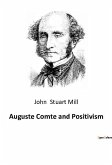1855. Other volumes in this set include ISBN number(s): 0766154734. Volume 2 of 2. These volumes are not a close translation of Auguste Comte's original work. It is a very free translation. It is more a condensation than an abridgment. The object was to convey the meaning of the original in the cleverest way possible; and to this all other considerations were made to yield. Whichever way we look over the whole field of science, we see the truths and ideas presented by Comte cropping out from the surface, and recognized as the foundation of all that is systematic in our knowledge.
Hinweis: Dieser Artikel kann nur an eine deutsche Lieferadresse ausgeliefert werden.
Hinweis: Dieser Artikel kann nur an eine deutsche Lieferadresse ausgeliefert werden.








